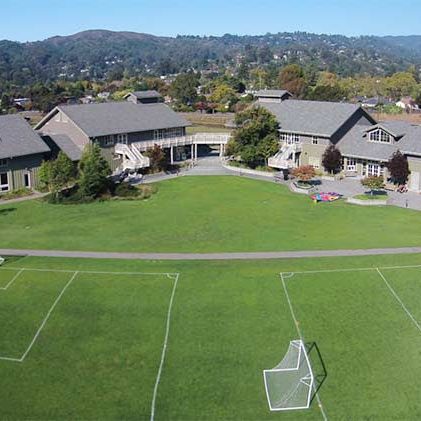
In the months after the City of Mill Valley’s 22-person Diversity, Equity & Inclusion Task Force issued its full report and recommendations in the form of a 93-page document that spanned the full breadth and depth of equity-related issues facing the city, policing drew the lion’s share of the discussion. Police Chief Rick Navarro and his team largely focused on the community’s interest in making Mill Valley a safer, more welcoming place for all residents and visitors, framed within the larger, national conversation around police killings of Black people, particularly the killing George Floyd, whose death sparked a series of peaceful protests both here in Mill Valley and all over Marin and the world in the spring and summer of 2020.
In response to those calls to action, MVPD implemented some of the tools spurred by AB 953: The Racial and Identity Profiling Act (RIPA), which requires California law enforcement agencies to begin “collecting and reporting data on complaints that allege racial or identity profiling,” as well as “perceived demographic and other detailed data regarding pedestrian and traffic stops. Here’s a comprehensive list of the actions taken to date. Those efforts and much more were part of the City’s DEI Work Plan.
But the scope of action went well beyond law enforcement activity and included affordable housing, economic opportunity, education and more. City officials have made some headway in particular via cultural and recreational engagement, including a recent collaborative screening with the Mill Valley School District of “Our America: Lowballed” at the Community Center.
Now Mill Valley Arts & Recreation is taking another substantial step forward, requiring all Mill Valley coaches and staff using public fields to participate in annual diversity, equity and inclusion training. “This is a meaningful step forward in fostering a sense of belonging in Mill Valley,” said Vanessa Justice, chair of the Parks and Recreation Commission. “We estimate that this training will be undergone by 1,000 coaches yearly, benefiting thousands of youth athletes playing on our fields.”
The program is called “Sports Can Battle Racism” from a nonprofit called the Positive Coaching Alliance. The program specifically identified the Mill Valley Little League, Mill Valley Girls Softball, the Mill Valley Soccer Club and the Southern Marin Lacrosse Club.
John Porter, executive director of the Southern Marin Lacrosse Club, said DEI initiatives have become a top-down priority for the sport’s governing bodies on a national basis. The club recently partnered with Play Marin, a Marin-City youth sports advocacy organization, to promote its DEI goals, he said.
“For us to be able to reinforce the importance of the message as a whole puts us in a position of leadership for the entire lacrosse community,” Porter said.
Risa De Ferrari, deputy director of the Mill Valley Arts and Recreation Department, told the Marin Independent Journal the program was expected to reflect positively in the mentorship of the many thousands of student athletes in the city. “As far as I’m aware we are the only recreation department in Marin County and possibly through the state that is spearheading this type of DEI initiative,” De Ferrari said. “We’re excited to make this work.”
The city plans to add a DEI element to the city’s general plan, City Manager Todd Cusimano said. The city is also continuing to pursue equity in its hiring practices, a city flag policy and the release of a calendar charting DEI-related events.
“We are continuing the work that we began in 2020 with our Black Lives Matter resolution, where we committed to act and encourage community action towards eliminating racial disparities, both inside government and in the community,” Cusimano said. “We take this commitment seriously, and work at it at all levels in our organization and in partnership with local community organizations.”

